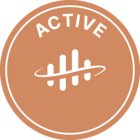I m working cognite hosted rest extractor and i m not able to perform incremental load and getting Kuiper http error while making a request. Can someone explain what the key name is when we use query params for incremental load and how should value look like in json having a conditional statement to pick a constant value in first execution and last_run from context after that? (Assume we have to modify startindex and lastindex query params after first excution)
Reply
Enter your E-mail address. We'll send you an e-mail with instructions to reset your password.


 Check the
documentation
Check the
documentation Ask the
Community
Ask the
Community Take a look
at
Academy
Take a look
at
Academy Cognite
Status
Page
Cognite
Status
Page Contact
Cognite Support
Contact
Cognite Support

